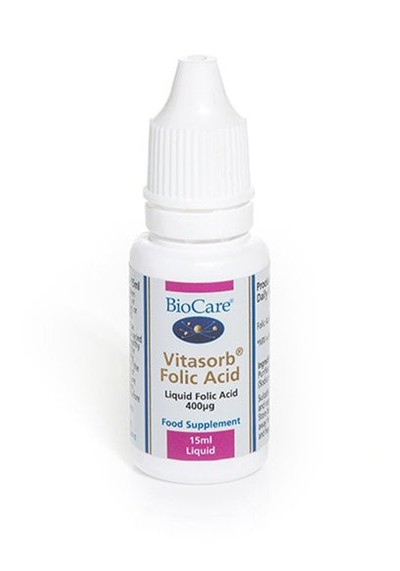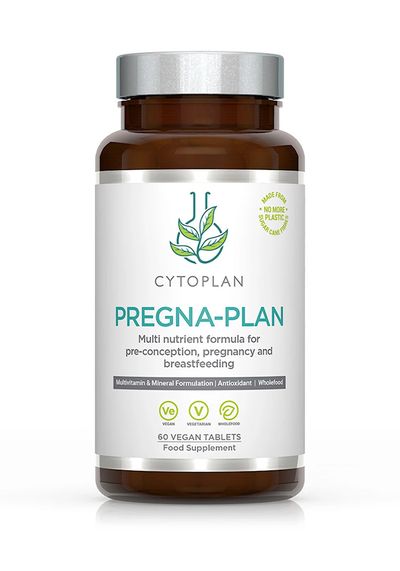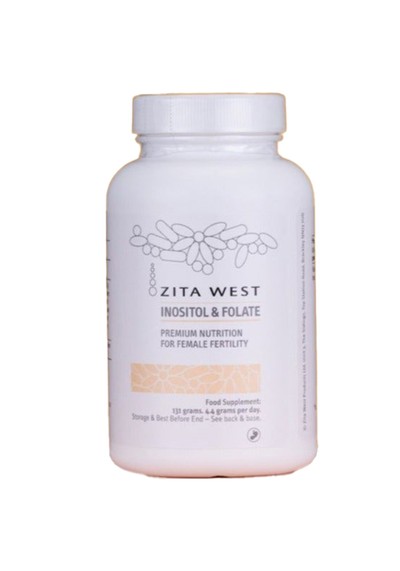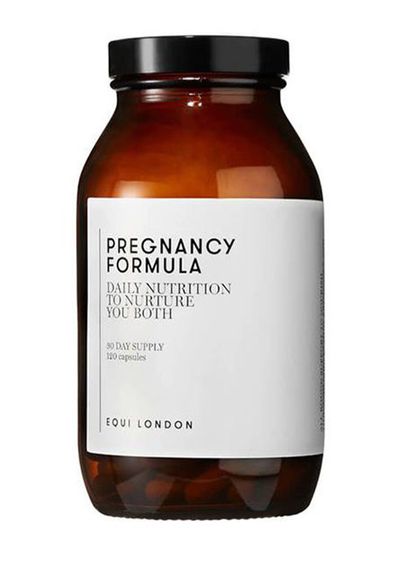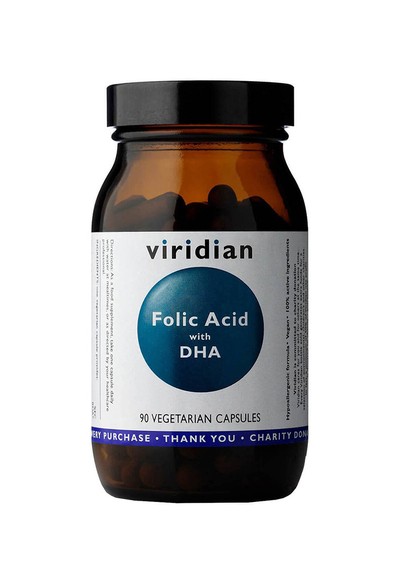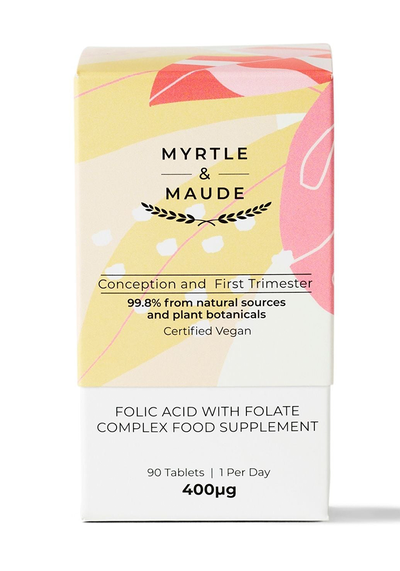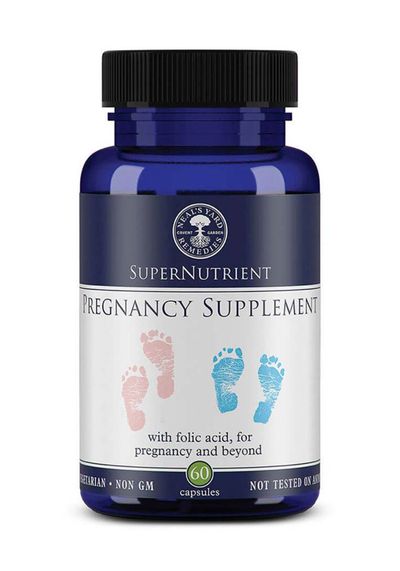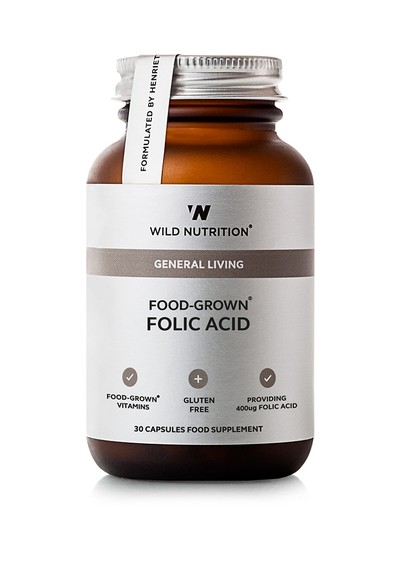
Everything You Need To Know About Folic Acid
First – what exactly is folic acid and what does it do?
“If you are pregnant, or thinking about having a baby, chances are you’ve read about folic acid and the importance of supplementing with it before and during your pregnancy. You may see it referred to as folate and folic acid. Simply put, folic acid is the synthetic form of folate (the type you are likely to find in a supplement), while folate is the natural (food) form of folic acid. Your body can’t make it, so it has to be obtained through the diet or via supplementation.” – Dr Emily Moreton, Hertility fertility nurse, nutritionist and patient liaison
What role does folic acid play during pregnancy?
“Folic acid is a vitamin that helps your baby’s neural tube grow, which is a vital part of the baby’s nervous system. Evidence shows taking folic acid supplements reduces the risk of your baby developing spina bifida and other conditions that affect the spine and neural tube. Neural tube defects (NTDs) are birth defects of the brain and spinal cord and are among the most common category of birth defects worldwide. Each year in the UK, around 900 pregnancies are affected by neural tube defects. However, over 70% of these could be prevented if women supplemented with folic acid. Folate is also needed for the synthesis of DNA in sperm, and adequate levels reduce the risk of ovulatory infertility, improve the environment for a developing egg and increase the chances of pregnancy.” – Dr Helen O’Neill, founder of Hertility Health
So, how long before conception should you take folic acid?
“Since folate is important for egg quality, maturation, fertilisation and implantation, it is important to take folic acid every day before you start trying to conceive. The optimum time to start supplementing would be 90 days before trying to conceive. It is also important to ensure you are including folate in your diet. You can find folate in leafy green vegetables, such as spinach, Brussels sprouts, cabbage and broccoli, fortified breakfast cereals, beans and legumes, yeast and beef extracts, oranges, wheat bran and other wholegrain flours, poultry, pork, shellfish and liver. However, it can be tricky to get enough through diet alone, so if pregnancy is something you are thinking about – or if you are already pregnant – you should take a supplement alongside a well-balanced diet.” – Helen
How long should you take it for?
“It’s widely recommended that pregnant women take folic acid for up to 12 weeks, after which point it isn’t hugely necessary. However, a significant study came out last month (looking at over 26,000 women) and showed continuous supplementation with folic acid throughout pregnancy was linked with a reduced risk of perinatal depression. A separate randomised control trial has also shown there is benefit to both mother and baby with continued folate supplementation after the first trimester.” – Helen
How much should you take?
“Everyone trying to conceive should be supplementing with 400mg of folic acid every day before getting pregnant and up to 12 weeks of pregnancy. Certain people may be at a higher risk of having a child with an NTD and therefore may be recommended to take a higher dosage of 5mg. This includes those with a BMI of over 30, those with diabetes or coeliac disease, taking epilepsy or antiretroviral medication and those parents who have had a NTD themselves, have a family history of them, or have previously given birth to a child with an NTD. If any of these apply to you, you must talk to your GP who can prescribe a higher dose. Some people may also need to take a methylated or active form of folate supplement if they have a specific mutation on the MTHFR gene which impacts folate absorption – your GP or fertility specialist can help with this. However, don’t worry too much about this, as only around 10% of people have a MTHFR gene mutation problem, and most people can still absorb around 60% of regular folate.” – Emily
What should you do if you find out you’re pregnant & haven’t been taking folic acid?
“Don’t panic. Around 50% of pregnancies are unplanned and chances are you’ll have been getting some folic acid in your diet, especially since all non-wholemeal flour in the UK is now fortified with folic acid. As soon as you find out you’re pregnant, start taking a folic acid supplement up until 12 weeks of gestation, and rest assured you would have likely consumed some folate through your food.” – Emily
What are the signs of a folate deficiency?
“Deficiency can result in some general symptoms such as tiredness, weakness, diarrhoea, loss of appetite and weight loss. For some people, it can also cause headaches, heart palpitations, a sore tongue and behavioural disorders.” – Helen
If you want to boost your intake naturally, what can you eat?
“A bowl of fortified breakfast cereal, perhaps some muesli with some freshly chopped orange or a glass of orange juice will provide you with two sources of folate. You’ll also get vital nutrients from cow’s milk such as protein, iodine and calcium. If your milk is plant-based, always make sure you choose one that has been fortified with vitamins and minerals. Breakfast aside, one cup of cooked kidney beans contains 33% of your daily intake, one half-cup of cooked asparagus contains 34%, one egg provides 6% and 30g of raw spinach, equivalent to one cup, provides 15%.” – Helen
Are there any nutrients that pair well with folic acid?
“Folic acid, together with vitamin B12, is necessary to form red blood cells. A deficiency can reduce the ability of red blood cells to carry oxygen, which is called ‘macrocytic’ (large cell) anaemia. Together, both vitamins help nerves to function properly. Long-term supplementation of folic acid can mask a vitamin B12 deficiency, so take extra care if you follow a vegan or plant-based diet and consider supplementing with vitamin B12 if you aren’t already.” – Helen
Finally, where should you start with supplements?
“Both The Department of Health and NICE recommend supplementing with 400mg of folic acid per day and 10mg per day of vitamin D for pregnancy. Supplements can be pricey, so if you don’t want to spend your money on a prenatal supplement then make sure you opt for supplementation with both folic acid and vitamin D. If you want to get your folic acid from a multivitamin tablet, make sure it's a specific prenatal formula and that the tablet does not contain vitamin A (or retinol). Make sure it has the correct dose of folic acid and vitamin D, and if you’re taking multiple supplements, ensure you’re not taking more than the recommended dose – always speak to your GP if you’re in any doubt.” – Helen
Shop Our Folic Acid Supplement Edit...
For more information visit HertilityHealth.com.
DISCLAIMER: Features published by SheerLuxe are not intended to treat, diagnose, cure or prevent any disease. Always seek the advice of your GP or another qualified healthcare provider for any questions you have regarding a medical condition, and before undertaking any diet, exercise or other health-related programme.
DISCLAIMER: We endeavour to always credit the correct original source of every image we use. If you think a credit may be incorrect, please contact us at info@sheerluxe.com.

